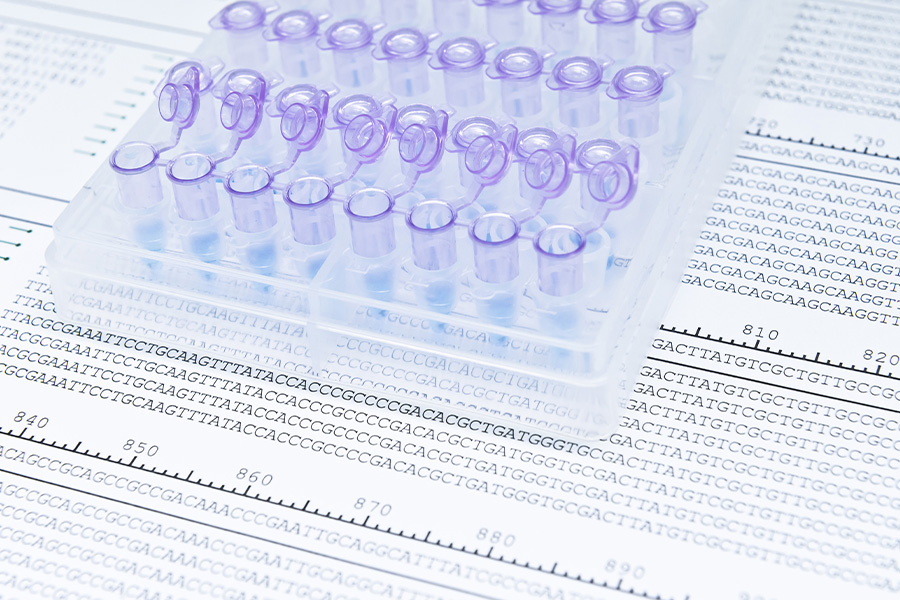DECODE: Developing Experts in Computation, Omics and Data Exploration Training Program

In today's fast-paced world of biomedical research, the ability to harness and interpret vast amounts of data is paramount.
The Developing Experts in Computation, Omics and Data Exploration training program offers a unique blend of academic courses and industry-inspired training to prepare students as future leaders in biomedical research.
DECODE is designed for both the novice and the experienced; it is valuable whether you are interested in a career in bioinformatics or learning how to use bioinformatics as a pivotal tool in your laboratory research. On top of your degree training requirements, you'll receive basic and advanced training in genetics, genomics and bioinformatics.
The heart of the program is a team project, which includes small group training with a high faculty-to-student ratio and peer advisors. At the end of the team project, you'll have tangible products (e.g., data analysis, software development or educational modules) that result in publications, presentations and other recognition.
The program trains four graduate students a year, who receive support from an institutional T32 training grant funded by the National Institute of General Medical Sciences.
In an era where big data reigns supreme, the ability to critically analyze and interpret complex networks of information is a skill that sets you apart in biomedical research. Excel in academia, industry and beyond with DECODE.
Students in the DECODE program will receive advanced training on top of their doctoral program requirements. You will learn:
- Programming and data science skills (no prior experience is needed)
- Data analysis using bioinformatics pipelines
- Inference of biological mechanisms using bioinformatics data
- Team science, project management and leadership skills
- Communication skills
- Teaching skills
Training will consist of:
- Formal courses
- Journal clubs and seminars
- Team project in bioinformatics
- Small group training with a high faculty-to-student ratio and peer advisors
- Mentored research leading to a doctoral thesis and degree
Curriculum
- First semester IGPBS core courses
- Bioinformatics (BISB 815)*
- Statistics (BIOS 806)*
- Presentation Skills (MGCB 907)
- Project Team Development (MGCB 902) – a multi-semester product development training course that includes communication, project management, and leadership training
- Annual short course – focused topic explored through journal club and symposium speakers
* Experienced students may have the opportunity to replace these requirements with advanced courses.
Your primary research opportunity is the dissertation research project conducted under the primary research mentor.
The team project at the foundation of this training program offers opportunities to engage in short-term research in bioinformatics. The project could involve novel analysis of publicly available data, comparison of different tools or analytical platforms, development of new software or apps, or creation of educational modules to teach bioinformatics and data science.
The team project is expected to result in a product (e.g., data analysis, software development or educational modules) that will be published or made available to the public and contribute to developing a professional resume or CV.
The team project also includes small group training with a high faculty-to-student ratio and peer advisors, which provides a personalized learning experience and social community.
As a member of the training program, you'll receive financial support, including:
- Yearly stipend of $33,000
- Tuition and fees waived
- Medical insurance
Plus, in addition to getting real-world experience in biomedical research, you will:
- Gain transferable skills, like communication and leadership, that are crucial to success regardless of career path.
- Stand out in today's competitive scientific landscape and strengthen your credibility for future training grant and fellowship funding.
- Build your CV through publications, presentations, software development or educational modules.
- Network with a cohort of students, faculty members and peer advisors, forming connections for future collaborations and job opportunities.
Eligibility
The program is highly competitive and trains only four graduate students each year.
The training program is open to domestic, first- and second-year PhD students in biomedical sciences. Preference is given to newly matriculating students. You must be able to commit to all required training program activities.
No prior training in computer programming or data science is required. Students should demonstrate self-motivation, self-direction in learning, timeliness and accountability, and willingness to venture outside their comfort zone.
Application
Requests for applications are made as slots become available and occur in the spring/summer, in parallel with IGPBS PhD admissions offers.
There is a competitive application process for each available slot. The application includes a brief personal statement and an interview.
Email Dr. Andrew Dudley with any questions.
Training Program Directors
Andrew T. Dudley, PhD
Associate Professor, Department of Genetics, Cell Biology and Anatomy

Chittibabu (Babu) Guda, PhD
Professor, Department of Genetics, Cell Biology and Anatomy
Chief Bioinformatics and Research Computing Officer
Director, Bioinformatics and Systems Biology Core

Faculty Mentors
Our faculty come from all areas within the Interdisciplinary Graduate Program in Biomedical Sciences, including faculty from the University of Nebraska Omaha.
